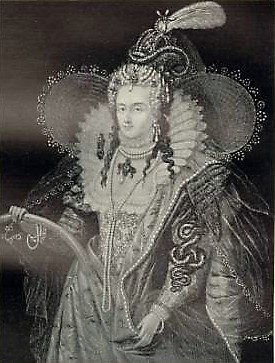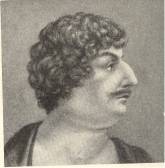Links:
The publishing of poems by unknown authors is an English tradition. Background to this famous satire comes from a royalist writer of the English civil war period. The poem itself dates from the next century.
In The Worthies of England ( 1662 ) Thomas Fuller says:
First we will dispatch that sole proverb of this county, Berkshire, viz: --
"The Vicar of Bray will be Vicar of Bray still."
Bray, a village well known in this county, so called from the Bibroces, a kind of ancient Britons inhabiting thereabouts. The vivacious vicar hereof living under King Henry the Eighth, King Edward the Sixth, Queen Mary, and Queen Elizabeth, was first a Papist, then a Protestant, then a Papist, then a Protestant again. He had seen some martyrs burnt ( two miles off ) at Windsor, and found this fire too hot for his tender temper. This vicar being taxed by one for being a turncoat and an inconstant changeling, -- "Not so," said he, "for I always kept my principle, which is this, to live and die the vicar of Bray." Such many nowadays, who though they cannot turn the wind will turn their mills, and set them so, that wheresoever it bloweth their grist shall certainly be grinded.
The poem's phrase 'turned the cat in pan' refers to a turn-coat, originally a soldier who turned his coat inside-out to show the other side's colors, if they were winning.
In Good King Charles's golden days,
When Loyalty no harm meant;
A Furious High-Church Man I was,
And so I gain'd Preferment:
Unto my Flock, I daily Preach'd,
Kings are by God appointed,
And Damn'd are those who dare resist,
Or touch the Lord's Annointed.
And this is Law, I will maintain
Until my Dying Day Sir,
That whatsoever King shall Reign,
I will be Vicar of Bray, Sir.
When Royal James, possest the Crown,
And Popery grew in fashion;
The Penal Law I houted down,
And read the Declaration:
The Church of Rome, I found would fit,
Full well my Constitution,
And I had been a Jesuit,
But for the Revolution.
And this is Law, etc.
When William, our Deliverer came,
To heal the Nations Grievance,
I turn'd the Cat in Pan again,
And swore to him Allegiance:
Old Principles I did revoke,
Set Conscience at a distance,
Passive obedience is a Joke,
A Jest is non resistance.
And this is Law, etc.
When Glorious Ann, became our Queen,
The Church of Englands Glory,
Another face of things was seen,
And I became a Tory:
Occasional Conformists base,
I Damn'd, and Moderation,
And thought the Church in danger was,
From such Prevarication.
And this is Law, etc.
When George in Pudding time came o'er,
And Moderate Men look'd big Sir,
My Principles I changed once more,
And so became a Whigg Sir:
And thus Preferment I procur'd,
From our Faiths Great Defender,
And almost every day abjur'd,
The Pope and the Pretender.
And this is Law, etc.
The Illustrious House of Hannover,
And Protestant Succession,
To these I lustily will swear,
Whilst they can keep possession:
For in my Faith and Loyalty,
I never once will faulter,
But George, my Lawful King shall be,
Except the Times shou'd alter.
And this is Law, etc.

Since there's no hope, come, let us kiss and part, --
Nay, I have done, you get no more of me;
And I am glad, yea, glad with all my heart,
That thus so clearly I myself can free;
Shake hands together, cancel all our vows,
And when we meet in any place again,
Be it not seen in either of our brows,
That we one jot of former love retain;
Now, at the last gasp of Love's failing breath,
When, his pulse failing, passion speechless lies,
When Faith is kneeling by his bed of death,
And Innocence is closing up his eyes, --
Now, if thou wouldst when all have given him over,
From death to life thou yet mightst him recover!
Turn back, you wanton flyer,
And answer my desire
With mutual greeting.
Yet bend a little nearer, --
True beauty still shines clearer
In closer meeting!
Hearts with hearts delighted
Should strive to be united,
Each other's arms with arms enchaining, --
Hearts with a thought,
Rosy lips with a kiss still entertaining.
What harvests half so sweet is
As still to reap the kisses
Grown ripe in sowing?
And straight to be receiver
Of that which thou art giver,
Rich in bestowing?
There is no strict observing
Of times' or seasons' swerving,
There is ever one fresh spring abiding; --
Then what we sow with our lips
Let us reap, love's gains dividing.
WHY, Damon, with the forward day
Dost thou thy little spot survey,
From tree to tree, with doubtful cheer,
Pursue the progress of the year,
What winds arise, what rains descend,
When thou before that year shalt end?
What do thy noontide walks avail,
To clear the leaf, and pick the snail,
Then wantonly to death decree
An insect usefuller than thee?
Thou and the worm are brotherkind,
As low, as earthy, and as blind.
Vain wretch! canst thou expect to see
The downy peach make court to thee?
Or that thy sense shall ever meet
The bean flower's deep-embosomed sweet
Exhaling with an evening blast?
Thy evenings then will all be past!
Thy narrow pride, thy fancied green
(For vanity's in little seen),
All must be left when Death appears,
In spite of wishes, groans, and tears;
Nor one of all thy plants that grow
But Rosemary will with thee go.
How happy is he born and taught,
That serveth not another's will;
Whose armor is his honest thought,
And simple truth his utmost skill!
Whose passions not his master are,
Whose soul is still prepared for death,
Untied unto the worldly care
Of public fame or private breath:
Who envies none that chance doth raise,
Or vice; who never understood
How deepest wounds are given by praise;
Nor rules of state, but rules of good:
Who hath his life from rumors freed,
Whose conscience is his strong retreat,
Whose state can neither flatterers feed,
Nor ruin make oppressors great:
Who God doth late and early pray,
More of his grace than gifts to lend,
And entertains the harmless day
With a religious book or friend.
This man is freed from servile bands
Of hope to rise, or fear to fall;
Lord of himself, though not of lands,
And, having nothing, yet hath all.
Shall I, wasting in despair,
Die because a woman's fair?
Or my cheeks make pale with care
'Cause another's rosy are?
Be she fairer than the day
Or the flowery meads in May --
If she be not so to me
What care I how fair she be?
Shall my foolish heart be pined
'Cause I see a woman kind;
Or a well-disposed nature
Joined with a lovely feature?
Be she meeker, kinder, than
Turtledove or pelican,
If she be not so to me
What care I how kind she be?
Shall a woman's virtues move
Me to perish for her love?
Or her merit's value known
Make me quite forget mine own?
Be she with that goodness blest
Which may gain her name of Best;
If she seem not such to me
What care I how good she be?
'Cause her fortune seems too high,
Shall I play the fool and die?
Those that bear a noble mind
Where they want of riches find,
Think that with them they would do
Who without them dare to woo;
And unless that mind I see,
What care I though great she be?
Great or good, or kind or fair,
I will ne'er the more despair;
If she love me, this believe,
I will die ere she shall grieve;
If she slight me when I woo,
I can scorn and let her go;
For if she be not for me,
What care I for whom she be?

To the virgins to make much of time
Gather ye rosebuds while ye may,
Old time is still a flying;
And this same flower that smiles to-day,
To-morrow will be dying.
The glorious lamp of heaven, the sun,
The higher he's a getting,
The sooner will his race be run,
And nearer he's to setting.
That age is best which is the first,
When youth and blood are warmer:
But being spent the worse and worst
Times still succeed the former.
Then be not coy, but use your time,
And while ye may, go marry;
For having lost but once your prime,
You may forever tarry.
I prithee send me back my heart,
Since I cannot have thine;
For if from yours you will not part,
Why, then, shouldst thou have mine?
Yet now I think on't, let it lie,
To find it were in vain;
For th' hast a thief in either eye
Would steal it back again!
Why should two hearts in one breast lie,
And yet not lodge together?
Oh, love! where is thy sympathy,
If thus our breasts thou sever?
But love is such a mystery,
I cannot find it out;
For when I think I'm best resolved,
I then am in most doubt.
Then farewell care, and farewell woe,
I will no longer pine;
For I'll believe I have her heart
As much as she hath mine.
Hither thou comest. The busy wind all night
Blew through thy lodging, where thy own warm wing
Thy pillow was. Many a sullen storm,
For which coarse man seems much the fitter born,
Rained on thy bed
And harmless head;
And now as fresh and cheerful as the light
Thy little heart in early hymns doth sing
Unto that Providence whose unseen arm
Curbed them, and clothed thee well and warm.
All things that be praise Him; and had
Their lesson taught them when first made.